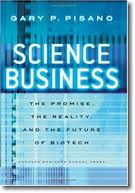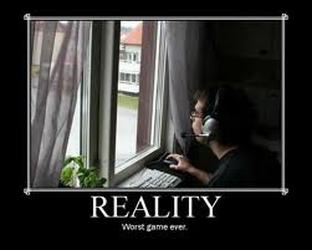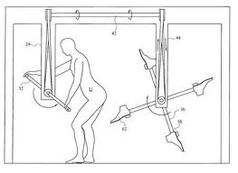 As part of a class I took on biotech, we were assigned to read Science Business by Gary Pisano. I learned a lot from the class and this book, and it really answered a question I've had for a long time: Why does science/medicine move so much more slowly than technology in general? I learned that the biotech industry as a whole has been barely profitable since its inception, and that there is a severe productivity crisis (productivity as defined by cost per successful drug has been dropping over time, which is very different from something like computer processors which have been dropping in price over time). There is a big "valley of death" between discovery of a compound or process and commercialization. It takes 10 years and $1 billion to get a drug to market, and 1 in 5,000 drugs makes it. WHOA. People are always optimistic about biotech revolutionizing health, and it hasn't lived up to this potential yet. The book explains many reasons for this and suggests some different approaches and solutions, none of which seems easy or straightforward. My full notes are below. I'm curious to see how the industry evolves in the future, as many lives could be saved and improved if things change drastically. I. Preface: The rise of a new industry and a big question a. Big hopes but disappointing financial returns over time b. Biotech firms not more productive in R&D than big pharma c. Fundamental business problems created by science d. Functional requirements of sector; performance comes from how well it’s managing these (poorly) i. Risk management ii. Integration iii. Learning e. Monetizing IP leads to bad info flow, fragmentation, proliferation of new firms f. Biotech can’t just adopt same methods as high-tech g. Can sci be a biz? h. Some businesses doing basic sci; some universities treating sci like biz (selling IP, starting co’s) i. 30 year history of biotech sector data analyzed II. Ch. 1: the science-based business: a novel experiment a. Biotech is convergence of 2 separate realms b. Science biz one that tries to advance sci, not just use it c. Sci biz needs unique mgmt d. Sector profits near zero historically e. Different norms, values, metrics between sci and biz f. 3 main factors i. Profound and persistent uncertainty => needs risk rewarding and mgmt 1. Long time horizons for risk to be resolved 2. Appropriability: ability of biz to capture value from an asset 3. Openness vs. secrecy ii. Complex and heterogenous nature of scientific knowledge => needs integration 1. Cross disciplinary iii. Rapid progress => cumulative learning Part 1: The Science of the business I. Ch. 2: mapping the scientific landscape a. Locks and keys b. Random screening c. rDNA d. mAb e. combinatorial chem f. SNPs g. Proteomics h. RNA interference i. RDD j. HTS k. Growing size, complexity, heterogeneity II. Ch. 3: the complex anatomy of drug R&D a. Can save or kill you b. So much still unknown c. So many places where drug can work wrong d. Target identification and validation: find enzyme e. Lead identification and optimization: find molecule to inhibit it f. Preclinical development: check safety and effectiveness before humans g. Human clinical trials phases 1-3 h. Reg approval III. Ch. 4: drug R&D and the organizational challenges a. Not like processor design; very little knowledge about entire system and overall spec b. Process very complex and can’t be broken into pieces: uncertainty and integrality c. Most R&D on losers d. Active ingredient and formulation both matter e. New scientific advances increase uncertainty; show more what we don’t know f. More choice means more uncertainty g. More advances mean harder integreation Part 2: The business of the science I. Ch. 5: the anatomy of a science-based business a. Many separate technologies b. Cyclical entry c. Genentech started industry i. Close links to universities ii. Biz model innovation: contract w/ big pharma for funding development of drug and royalties in exchange for manufacturing and marketing rights 1. First time pharma did R&D through external for-profit co iii. Pursuit of broad range of opportunities/diseases d. Second generation used more chemistry and focused on research, allowing pharma to commercialize e. Third gen: human genomics, industrialized R&D, platform strategy f. Market for know-how i. More collab w/ biotechs than w/ univ II. Ch. 6: the performance of the biotech industry: promise vs. reality a. Long lag times b. Zero industry profits c. Huge skews for Amgen and Genentech d. R&D productivity, revenue-adjusted III. Ch. 7: monetizing IP a. Txr of IP from univ -> private new firms b. Capital markets (VC) and public equity c. Market for know-how (small firms trade IP for funding from big firms) d. Go public much earlier for funding i. Only 20% of public co’s today have ANY product on market, so basically R&D entities ) (GAAP not as useful) e. Univ research -> startup w/ VC -> IPO for more funding -> license to big co to bring to patient f. 3 requirements for risk mgmt. i. Many options for diversification ii. Adequate info iii. Abilty to reap reward g. Market for know-how -> integration i. But biotech less modular and codified than software ii. IP protection murky IV. Ch. 8: organizational strategies and business models a. Few examples of success, high uncertainty, luck plays big role b. Financing critical for industry and its main measure, but wrong measure because it’s input, not performance c. Alliances/IP monetization are important but not endgame d. Movie studio model for big pharma: produce ideas of independent writers V. Ch. 9: The path ahead a. Venture philanthropy b. Rethinking the publicly held biotech firm (doesn’t match 10 year investment cycle)
0 Comments
I randomly heard that Zao was giving a talk at the UCLA life sciences area about gamification, and I was able to watch it remotely and take some notes. The talk was part of UCLA's "Managing Invention" series, and it was titled, "Hooked on Gaming: Applications for Education, Scientific Knowledge and Marketing."
I met Zao at BetterWorks, and he's one of the smartest guys I know -- quick, action-oriented, and no-BS. He's the founder of MyMiniLife which became FarmVille and the engine behind most of Zynga's social games after it acquired his company. Notes on the talk are below. FarmVille story
Psychological tricks
Gaming
importance of curation
Gathering market data using gamification
I recently came across a patent article by Fred Wilson and another by Brad Feld, two respected VCs in the tech community. I found their points resonating with me, even though I've been considering the theory of patents from the entrepreneur's perspective. They were saying that suing over bogus software patents (like Yahoo did) didn't make sense, and I buy that. I can also numerous arguments from the entrepreneur's perspective -- one's that I've directly faced and considered -- that make the current system seem pretty ridiculous. First, the process is overly expensive and quite archaic. The point is to "share knowledge" and publicize inventions so they improve the human condition, but no one sits there reading patents that just got issued, and there's a huge time delay between invention and issue. That time delay causes other problems, including uncertainty and added cost. Also, the people writing and reviewing the applications often don't understand the technology well enough to act right, which causes invalid patents to be issued and fights over validity. And there's the whole problem of patent trolls. The recent reforms requiring first to file cause even more anxiety around the patent decision since you need to decide earlier whether you want to patent or not. This has been the case in Europe forever, where I've heard you pretty much always file provisional patents before you go talk to investors or even create a website. This definitely seems "wasteful" from the "lean" standpoint to me. While I hate the idea of people stealing ideas, I'm a big fan of competition on quality of product and effort; it's really the execution that matters way more than the idea content. What creates tension, though, is that there are areas where patents do more good than harm, such as in biotech. I've been taking a biotech entrepreneurship class for my last quarter, and I heard a researcher tell us how no pharma company would consider licensing or buying their technology or helping them commercialize their invention if they didn't have tight-sealed IP protection. While you can get away with software patents from $10-50K, I've learned that UCLA spends $1M defending patents through to issue for life sciences discoveries, so for UCLA, it's an even more difficult question and much bigger investment. How can these two points be resolved? Do we abolish software patents? Do we have much stricter guidelines on "obviousness" that are spelled out? How do we fix the backlogs in the USPTO and make the process cheaper? Or do we just kill patents altogether and say let the best man/woman/execution win? |
Archives
February 2023
Categories
All
Subscribe |


 RSS Feed
RSS Feed

